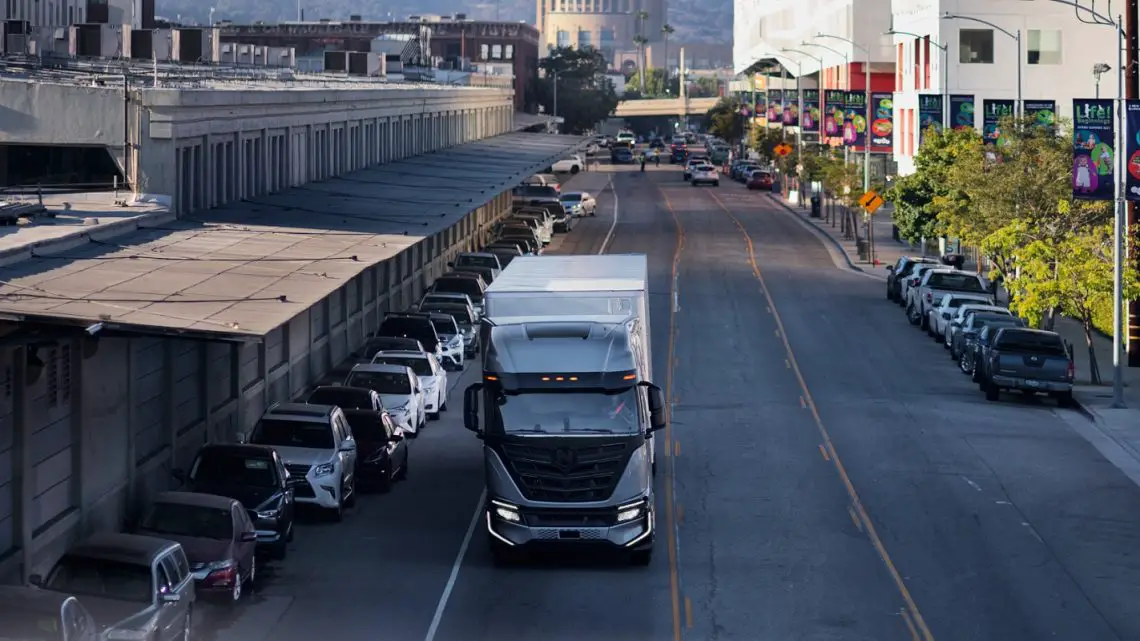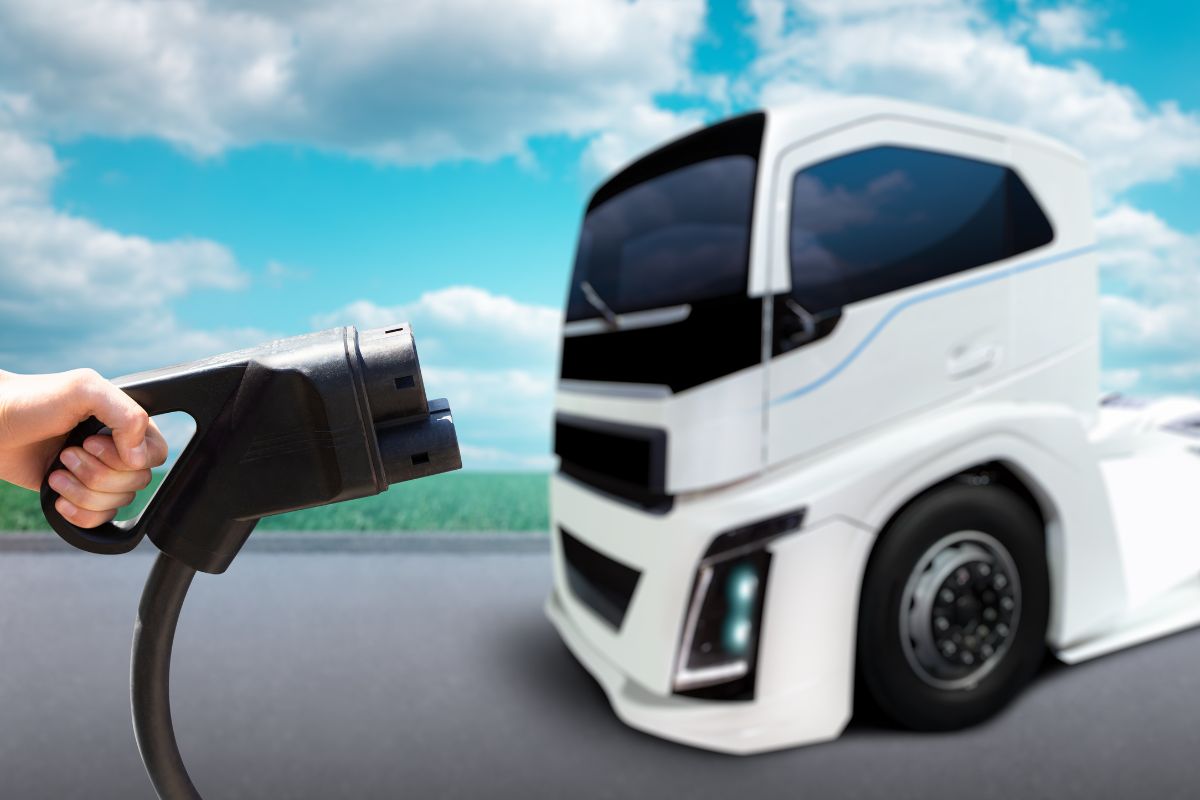
First Batch of 14 Nikola Tre BEV trucks to be delivered to WattEV
May 5, 2023Nikola recently announced the upcoming sale and delivery of the trucks to WattEV.
According to a Nikola Corporation (NASDAQ: NKLA) news release, the sale of the Nikola Tre BEV (battery-electric vehicle) trucks is being financed with a long-term lease between WattEV and Mitsubishi HC Capital America.
WattEV intends to serve fleets of commercial BEVs.
The Long Beach-based developer of electric vehicle charging infrastructure for heavy-duty trucks is building powerful public charging depots to serve commercial battery-electric vehicles. Also a provider of electric trucks as a service (TaaS), WattEV specializes in meeting the needs of shippers and fleet operators dedicated to meeting California’s mandates toward achieving zero-emissions.
Starting this month (May 2023), the first of WattEV’s four charging depots located in Southern California will reportedly open for service at the Port of Long Beach, with access to interstate 710 and 110. Nikola Tre BEVs will be able to use these depots for daily charging.
WattEV has been running a pilot test with Nikola Tre BEV trucks for the past six months.
According to WattEV CEO Salim Youssefzadeh, for the past six months the company has been running a pilot test with Nikola Tre BEV trucks and are “quite satisfied” with the trucks’ energy efficiency and the continual technical support.

“Nikola’s customer-centric approach to meet our requirement for transition from CCS to MCS charging will be a game changer, which will allow us to rapidly expand our fleet size,” the CEO said.
Presently, CCS (Combined Charging System) is the charging standard for heavy-duty electric trucks. The goal is for higher power MCS (Megawatt Charging System) to take its place and become the global standard for fast-charging of medium- and heavy-duty commercial vehicles. MCS would lower the typical charge session to under 30 minutes.
WattEV’s mission aligns with Nikola’s vision.
 “WattEV’s mission aligns with Nikola’s zero-emission vision to address the infrastructure pain point in support of the transition to zero-emissions by placing commercial truck charging solutions at all their depots,” said Michael Lohscheller, President and CEO, Nikola Corporation.
“WattEV’s mission aligns with Nikola’s zero-emission vision to address the infrastructure pain point in support of the transition to zero-emissions by placing commercial truck charging solutions at all their depots,” said Michael Lohscheller, President and CEO, Nikola Corporation.
Lohscheller believes that the “availability of WattEV’s charging depots will play a significant role in industry adoption and provide customers with immediate zero-emission solutions.”
In addition to featuring its MCS charger at this year’s ACT Expo, WattEV is hosting the Vehicle Interoperability Testing Symposium from May 9 – 11, 2023, at its Charging Depot at the Port of Long Beach. At the event, both high-capacity chargers capable of charging over 100 trucks a day and the Nikola Tre BEV will be showcased.
Join in the conversation – See Below: [forminator_poll id=”58027″]



 With over 15 years of reporting hydrogen news, we are your premier source for the latest updates and insights in hydrogen and renewable energy.
With over 15 years of reporting hydrogen news, we are your premier source for the latest updates and insights in hydrogen and renewable energy.
The discussion is relatively mute. Between Nikola, Plug Powe, Hyzon, Ballard, Bosch and a multitude of other manufacturers the proliferation of portable H2 fueled electrolyzes are and will flood the market at a lower rate than the established inept electric providers can can or want to adjust.
Energy strategies can differ worldwide but should focus on energy options that will secure long-term availability for their populations and address the climate warming effects of using fossil fuels. Natural gas and oil are important worldwide resources: However, they should not be used to produce energy when renewable options are readily available and safer for all life on Earth. A similar problem exists with using lithium in batteries and its mining, refining, and recycling methods. Further, future availability is a concern as well. The largest lithium reserves are found in regions that will suffer from drought in future decades and Boliva lithium, the largest reserves, has high concentrations of magnesium making it more costly to mine and refine. SMR nuclear reactors make sense in places where uranium is mined and available. Most nations planning to use nuclear reactors to produce energy must get their uranium elsewhere, availability will become an issue in the future. Coal could be used and makes sense if the carbon is captured and not allowed to contribute to climate warming as the world makes the transition to a hydrogen economy and renewable energy solutions. Graphene a form of carbon offers the means for all to have a peaceful and sustainable renewable energy future free from conflicts. Carbon is a gift made from helium in an amazing process as a Star burns through hydrogen and dies. The world recognizes the importance of carbon in producing energy and must change the methods and use it properly and safely. Carbon is a gift made from helium in an amazing process as a Star burns through hydrogen and dies. Graphene is an amazing miracle carbon energy product needed to make a worldwide energy transformation that will protect our Earth and its life. Hydrogen will pass through graphene, but helium will not, because carbon was created in dying Stars for all to have life on Earth, let’s protect Earth and use carbon safely.
The infrastructure change needed to support EV battery charging by 2030 worldwide will largely use hydrogen. Hydrogen Hubs, H2 Microgrids and H2 Fuel Cell Microgrids will be developed quickly and provide the needed EV electrical capacity for this great EV charger. SMR Nuclear Reactors requiring less uranium will play an important part as well adding to this electrical capacity. Seawater Sodium Sulfur batteries will soon replace the use of lithium batteries in these amazing Nikola EV Trucks and the amazing WattEV charging system will be a nice addition for companies using these incredible EV Trucks. Please be aware oil and natural gas will be needed for centuries to come, oil to make essential living products and natural gas to make fertilizer used worldwide for agriculture needs.
Best not to be the dying Star that burned through its hydrogen.